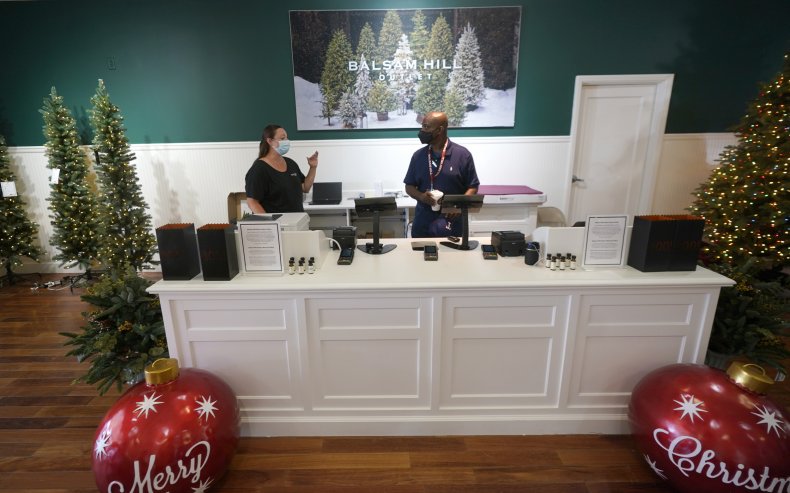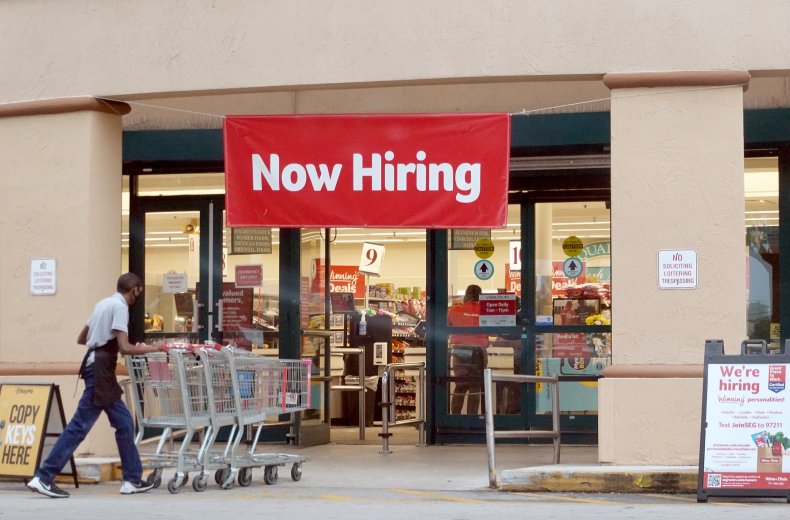Jobseekers Say Flexible Hours a Top Factor While Companies Struggle to Fill Roles
As companies struggle to fill unprecedented numbers of job listings, jobseekers with more positions to choose from than ever are saying that flexible hours are one of the most important details in choosing a job, the Associated Press reported.
ManpowerGroup recently conducted a study that found nearly 40 percent of job candidates across the world ranked schedule flexibility in their top three factors in making career decisions.
Job site platforms are noting a similar shift. SnagAJob, an online forum for hourly staffers, said that the word "flexibility" is now mentioned in 11 percent of the 7 million job postings on the site. Earlier in the year, the term was included in 8 percent of postings.
At the end of August, there were more than 10.4 million jobs open after 11.1 million the previous month, the highest number of available positions since at least December of 2000, AP reported.
The record number of postings went hand in hand with a jump in the number of people who quit their jobs, with the 4 million people quitting in July jumping to 4.3 million in August, according to the Labor Department.
For more reporting from the Associated Press, see below.

After struggling to hire workers for its outlet store in Dallas, Balsam Hill finally opened on September 1. But the very next day, the online purveyor of high-end artificial holiday trees was forced to close after four of its five workers quit.
The main gripe for three of them? Working on weekends. So they found jobs elsewhere with better hours.
Balsam Hill reopened weeks later with nine workers, hiking the hourly pay by $3 to $18 per hour. But more importantly, it changed its approach: Instead of only focusing on the needs of the business, it's now closely working with each employee to tailor their schedules based on when they want to work.
"We're working against people who have the choice of wherever they want to work," said Kendra Gould, senior retail strategist at Balsam Hill. "Now, it's more about what do you need as an employee and how can we make you happy?"
Among the new workers Balsam Hill hired was Rickey Haynes, 62, a pastor for a local Baptist church. He retired in July but still preaches in the community. He said he was looking for part-time work in retail but didn't want to work Sundays because of his preaching. Balsam Hill was willing to work around his schedule.
"They were accommodating," he said. "If I could, I could work with them until I am done."
Instawork, a staffing marketplace that connects local businesses with skilled hourly workers, said the rate at which employers were able to fill weekend shifts dropped significantly from January through August compared with weekday shifts.
Such challenges are happening as companies struggle to hire holiday workers. Target Corp. said this month it will pay $2 an hour more to employees who pick up shifts during peak days of the holiday season, including Saturday and Sunday, as well as on Christmas Eve or on the day after Christmas. That's on top of companies already dangling bonuses and loosening requirements for drug testing and educational minimums that have kept some people out of the workforce.
Sumir Meghani, co-founder and CEO of Instawork, said such perks don't solve the root of the problem.
"It's about flexibility," said Meghani, noting that available shifts on Instawork have surged eightfold from right before the pandemic to August of 2021. "It's about workers saying, 'I don't want to work weekends' or 'I can't work Mondays, Tuesday and Wednesdays because I don't have child care or schools haven't reopened' or 'I am worried about COVID.'"
Meghani said hourly workers are asking how can they get the same work-life balance as their peers who can work remotely.
"The challenge is, if you are a bartender you have to work until 2 a.m.," he said.
Employers of such jobs are limited in what they can do given the nature of how they operate, especially with customers having grown accustomed to getting what they want when they want it.
Radial, which fills online orders for retailers like Dick's Sporting Goods and PetSmart, said it's working to align its schedules with candidate expectations at each location. Increasingly, it's accommodating popular shifts such as Monday through Friday only, or Saturday and Sunday only.
But Sabrina Wnorowski, Radial's vice president of human resources, said it's difficult to address everyone's needs given the unpredictable nature of spending during the holidays.
On the flipside, the working poor have long struggled with erratic work schedules, particularly in the food service and retail sectors, said Daniel Schneider, professor of public policy at the Harvard Kennedy School of Government whose Shift Project focuses on inequality of low-income workers.
"The problem isn't new, and we've shown that the consequences for workers and their families are dire," said Schneider, noting day-to-day instability of work schedules is inextricably linked to job instability. That leads to high job turnover for workers, which in turn imposes costs on individuals and on firms.
During the pandemic, hourly workers were hit especially hard when non-essential businesses like department stores and restaurants were forced to close for a few months during the spring of 2020. Those who remained employed at essential businesses like grocery stores found themselves overworked under the crush of shoppers' purchases for basic items.
When demand for dining and shopping rebounded as more people got vaccinated this past spring, businesses couldn't hire workers fast enough. And many of the hourly employees found new jobs as they redefined their priorities. That contributed to a labor shortage, forcing employers to look for ways to make their jobs seem more attractive while also being forced to cut back on hours of operation.
The National Restaurant Association said that 68 percent of the 4,000 operators it polled in a September survey said their restaurants reduced hours of operation on days they were open for business from June through August. The survey also found that 45 percent of the operators polled said they closed their restaurant on the days that it would normally be open during that time frame.
Donald Minerva owns the restaurant Scottadito Osteria Toscana in Brooklyn, New York. He said that right before the pandemic, he had 16 workers who worked various shifts at his restaurant, which was open six days a week. Now, Minerva has 14 workers but a good chunk of them don't want to work double-shifts, so the restaurant is now open just five days a week with limited hours.
Minerva said 70 percent of his staff are from the pre-pandemic days and want to work 40 hours a week. But the new workers want more flexibility.
For Minerva, that means he has to spend more time working on their schedules and less time on priorities like coming up with new strategies to bring in customers.
"It's a juggle to find them, and a juggle to keep them," he said.


